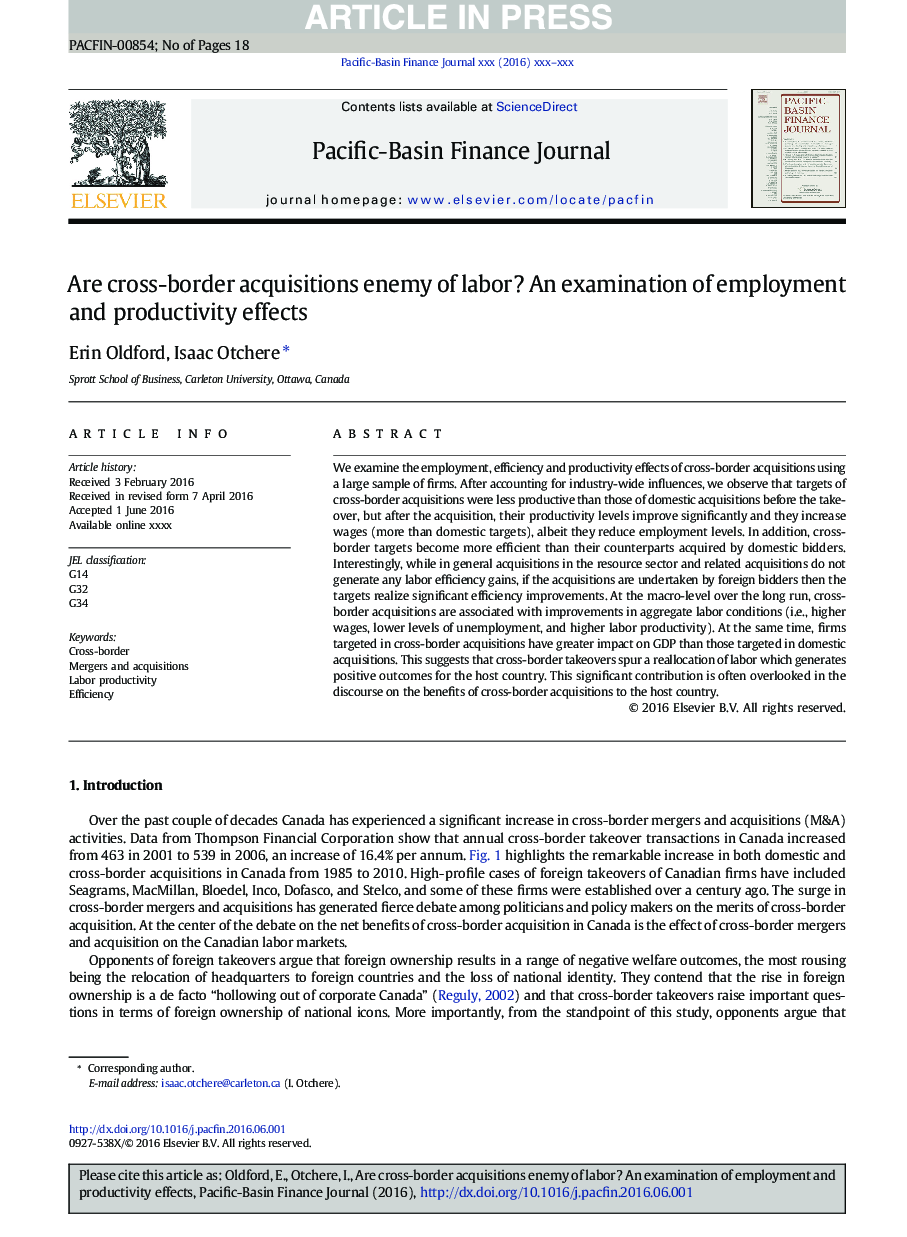| Article ID | Journal | Published Year | Pages | File Type |
|---|---|---|---|---|
| 7374408 | Pacific-Basin Finance Journal | 2016 | 18 Pages |
Abstract
We examine the employment, efficiency and productivity effects of cross-border acquisitions using a large sample of firms. After accounting for industry-wide influences, we observe that targets of cross-border acquisitions were less productive than those of domestic acquisitions before the takeover, but after the acquisition, their productivity levels improve significantly and they increase wages (more than domestic targets), albeit they reduce employment levels. In addition, cross-border targets become more efficient than their counterparts acquired by domestic bidders. Interestingly, while in general acquisitions in the resource sector and related acquisitions do not generate any labor efficiency gains, if the acquisitions are undertaken by foreign bidders then the targets realize significant efficiency improvements. At the macro-level over the long run, cross-border acquisitions are associated with improvements in aggregate labor conditions (i.e., higher wages, lower levels of unemployment, and higher labor productivity). At the same time, firms targeted in cross-border acquisitions have greater impact on GDP than those targeted in domestic acquisitions. This suggests that cross-border takeovers spur a reallocation of labor which generates positive outcomes for the host country. This significant contribution is often overlooked in the discourse on the benefits of cross-border acquisitions to the host country.
Related Topics
Social Sciences and Humanities
Economics, Econometrics and Finance
Economics and Econometrics
Authors
Erin Oldford, Isaac Otchere,
